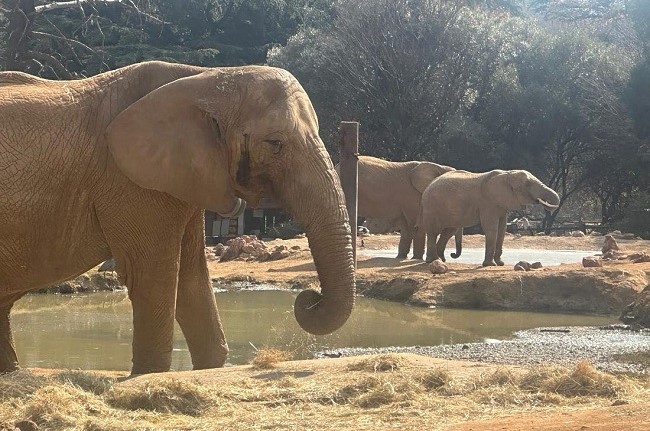SEO Riders:
- – Communities oppose zoo elephant relocations amid welfare and educational concerns
- – Activists demand reintegration into sanctuaries, not captivity in shrinking enclosures
- – Legal and public pressure mounts to uphold animal rights under South Africa’s Constitution
Protests have erupted in both Pretoria and Johannesburg following decisions to relocate elephants from their local zoos. In Pretoria, the relocation of Charley—the zoo’s last elephant after four decades in captivity—sparked concerns over diminishing educational access for underserved communities. The Public Servants Association warned that such moves could erode the zoo’s value as a learning and cultural asset.
Meanwhile, in Johannesburg, residents and animal rights groups are demanding humane treatment for Lammie, Mopane, and Ramadiba, calling for their release to a rewilding sanctuary. Protests have been backed by powerful legal action: Animal Law Reform SA, the EMS Foundation, and Khoi community leader Chief Stephen Fritz have approached the High Court of Gauteng, arguing that the elephants’ captivity infringes on the constitutional right to a healthy environment and animal well-being.
Context & Highlights:
- – Legal grounds: Applicants assert that confining sentient, socially complex animals such as elephants contravenes Section 24 of the Constitution, which guarantees environmental rights and protection of biodiversity.
- – Public backlash: Over 300,000 petition signatures, advocacy from leading conservationists, and protests have pressured authorities to reconsider continued captivity at Johannesburg Zoo.
- – Shifting norms: Charley’s relocation to a sanctuary has reignited public debate and inspired momentum for freeing the remaining zoo elephants.
Reflection: These protests underscore a societal shift in South Africa—a movement toward recognizing animal welfare not just as conservation, but as a constitutional and ethical imperative. The outcomes of these legal and civic actions could shape the future of how the country balances wildlife education, cultural heritage, and ethical stewardship of sentient beings.
